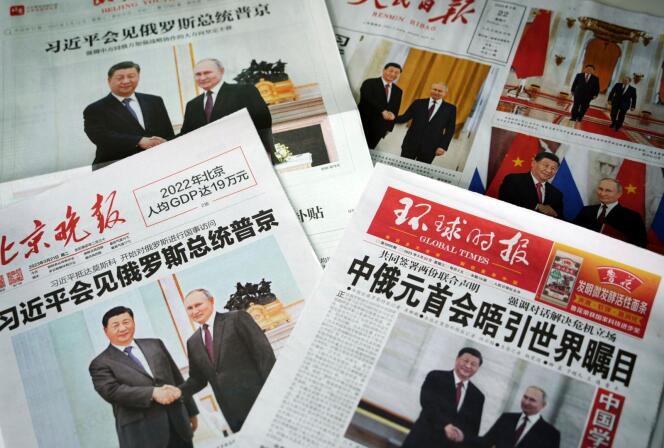VDimir Putin and Xi Jinping like to describe relations between their two countries as “comprehensive strategic partnership for a new era, not prohibiting any area of cooperation”. The proximity between the two leaders established during more than forty meetings, their very strong ideological and political complicity, anti-American and anti-Western solidarity as well as the good performance of economic relations could perfectly justify this name.
However, these relationships have never been completely peaceful during their long history. Since the very first contacts established in the 17the century, periods of open or muted hostility have always been longer than periods of friendship and fraternity. And in all cases, a deep distrust has always marked their relations.
The first period of open hostility lasted more than fifty years, between 1860 and 1911, the year the Qing dynasty fell. The Russian Empire had then actively participated in the “break up of China”, the rush towards China, in concert with the European colonial powers and Japan. Saint Petersburg had been the greatest beneficiary by seizing, by virtue of the “unequal treaties”, of almost 2 million square kilometers. The memory of these spoliations, even if put under a bushel by the current Chinese authority, is still present in the memory of the Chinese.
“Margarine Communist”
The second period of open hostility took place during the 1960s and 1980s, for more than twenty years, when relations between the two communist powers had deteriorated to the point of bringing them to the threshold of nuclear war. The primary reason was undoubtedly Mao’s claim to wrest leadership of the international communist movement from the Soviet leaders who succeeded Stalin.
On the other hand, it is possible to qualify “bittersweet” the period beginning with the Bolshevik revolution of 1917 – “the volcanic event that illuminated the consciousness of the Chinese elite”according to François Fejtö, the eminent historian of the international communist movement and ending with the founding of the People’s Republic of China (PRC) by Mao in 1949.
Certainly, the Soviet Union of Lenin and Stalin had throughout these thirty-two years powerfully supported the movement “anti-imperialist” Chinese. Not wanting “put all your eggs in one basket”, Moscow then supported, either alternately or simultaneously, the Chinese Communist Party of Mao Zedong and the Guomindang of Chiang Kai-shek. However, his support, never disinterested, had always been put at the service of the interests of the Soviet state, notably through the Comintern. Above all, the USSR, which had nevertheless officially renounced the privileges acquired in China by the Romanov Empire, was careful not to return the plundered territories to it. This ambivalent policy ended with the victory of the Communists in 1949.
You have 65% of this article left to read. The rest is reserved for subscribers.
